Planting 1 Million Trees in Brazil to Help Create South America’s Largest Biodiversity Corridor

Get news, updates, & event Info delivered right to your inbox:
Reconnecting Forests Across a Fragmented Landscape
Not so long ago, the Amazon rainforest extended uninterrupted for thousands of kilometres, naturally transitioning into the sprawling Cerrado savannas that lie at the heart of Brazil. Trees linked these ecosystems together, maintaining healthy watersheds and ecosystem services across a vast landscape, while connecting habitat for innumerable species of wildlife ranging from Spider Monkeys and Tapirs to Black Jaguars, the apex predators of South America.
Today, in many places these forest ecosystems have been reduced to fragments as land clearance, logging and agriculture have carved up the landscape into a patchwork of land uses. In the process, the many benefits that forests provide have been degraded and fragmented, too.
However, private landowners are increasingly seeing the value of planting trees and the inextricable links between a healthy environment and healthy livelihoods. Today, a movement is growing to reconnect the Amazon and Cerrado by planting indigenous trees to create a massive biodiversity corridor across Brazil, guided and supported by private landowners and a coalition of local and international groups.
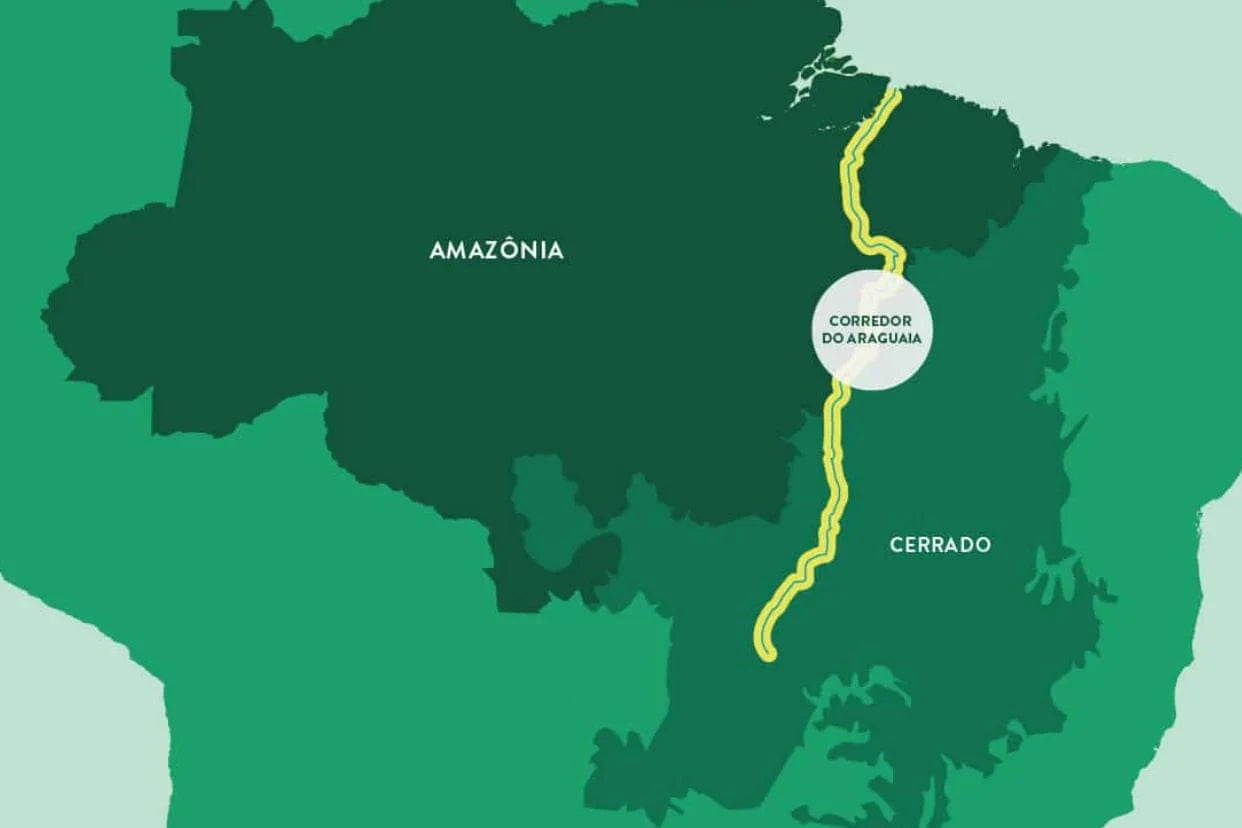
South America’s Largest Biodiversity Corridor
In this mission, One Tree Planted has partnered with the Black Jaguar Foundation to support an ambitious plan to create South America’s largest biodiversity corridor. Following propagation of seedlings in nurseries and extensive planning with farmers and technical experts, the first large-scale planting is kicking off this year with the establishment of 950,000 indigenous trees across the Brazilian states of Tocantins and Pará.
Located in Central Brazil, the Araguaia Biodiversity Corridor is poised to become the longest of all nature corridors on Earth and one of South America’s largest reforestation projects. With a total length of 2,600 kilometres and a width of up to 40 kilometres, the corridor spans the entire length of the Araguaia river from North to South. Collectively, the corridor will cover an area of 10.4 million hectares, from which 1,700 native trees of 50 different species will be planted per hectare.
The scope of this restoration is enormous and will help link the natural transitional boundaries of the Amazon rainforest with the Cerrado savannah to reconnect habitat for wildlife while enhancing ecosystem resilience across the landscape. The overall objective is to restore 1.7 billion native trees across Brazil, so this project is just getting started and we're aiming to plant many more trees!
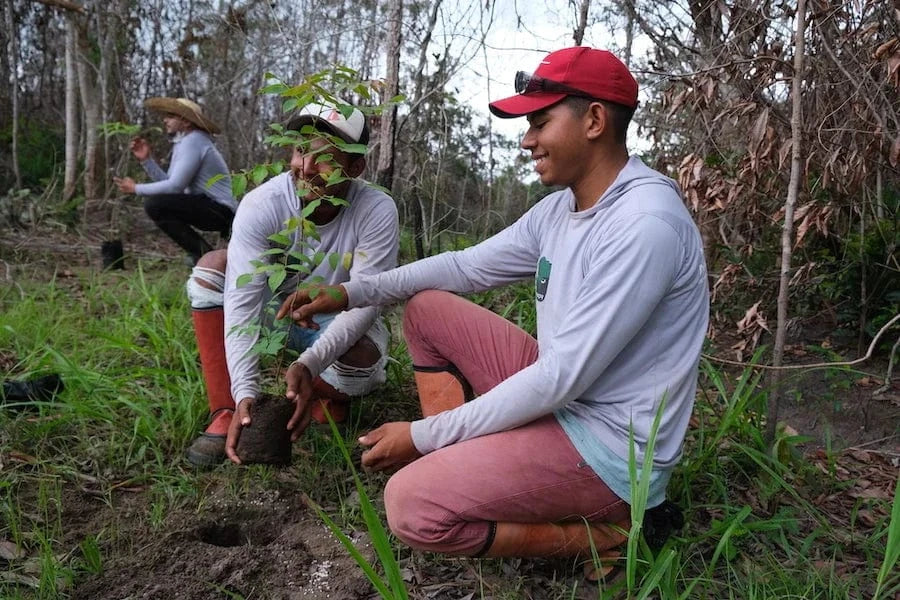
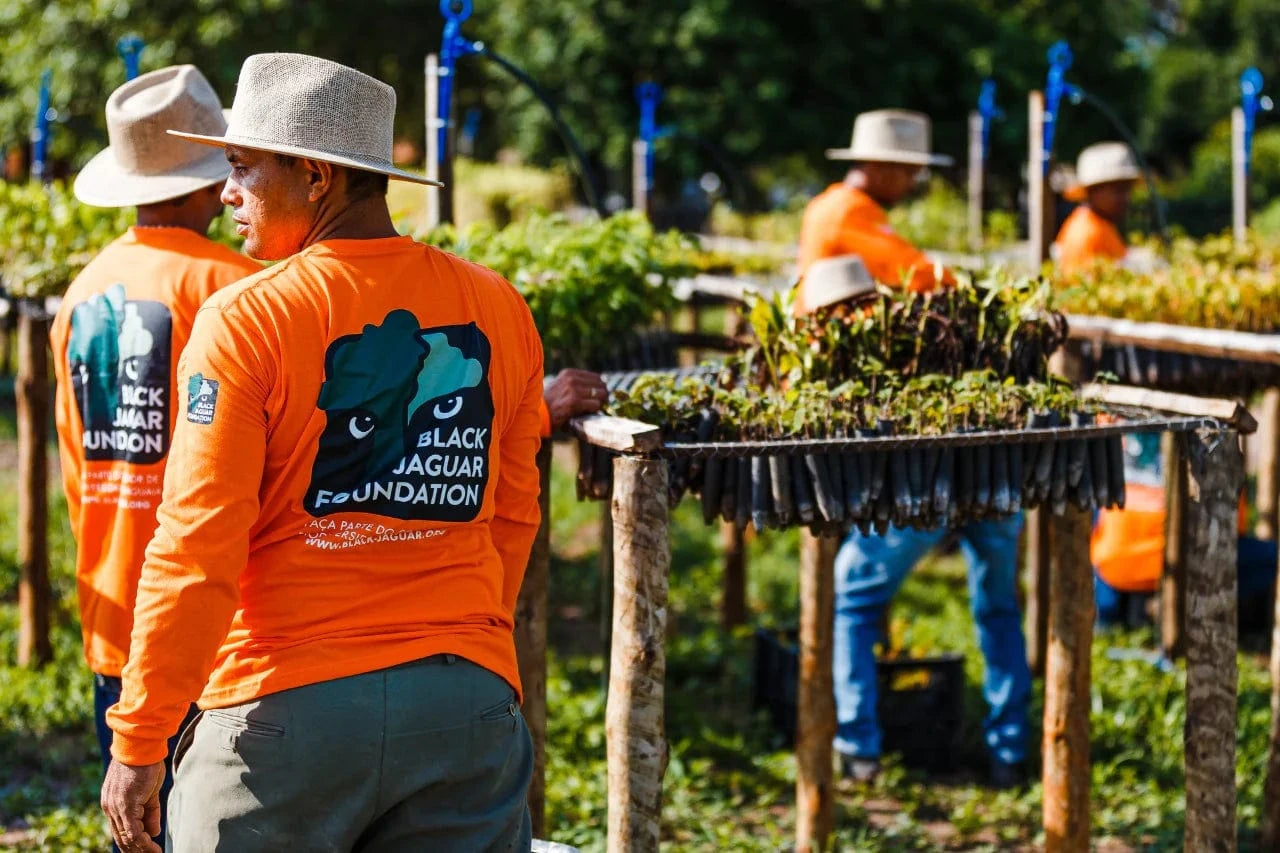
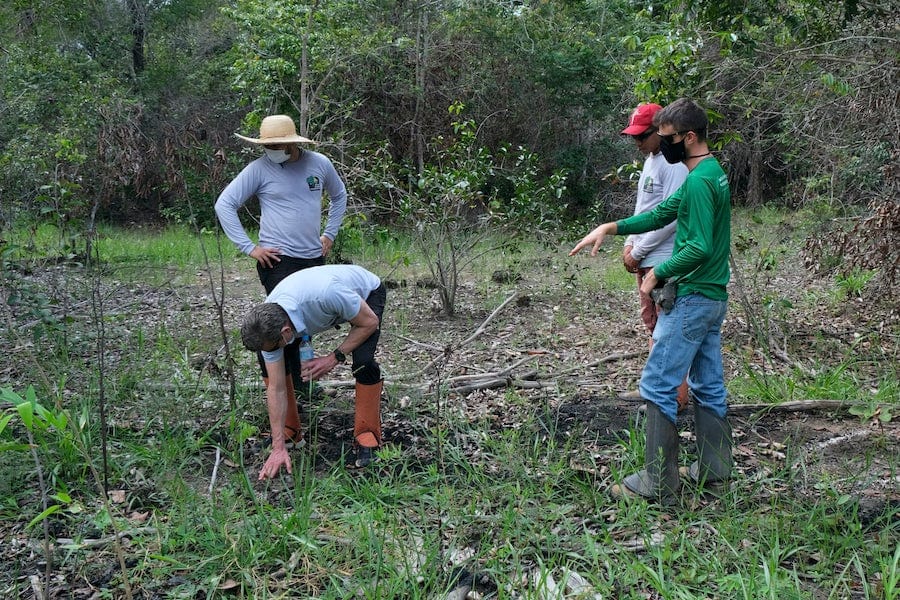
Enlisting Farmers as Foresters
Crucially, the Araguaia Biodiversity Corridor enlists farmers as partners, developing agreements with private landowners to adhere to the Brazilian Forest Code. This visionary code states that between 20% - 80% of every rural private property in Brazil should be dedicated to preserving native vegetation.
In this way, the project ensures the creation and linkage of “natural habitat islands” across separate farms. After restoring designated areas within Permanent Preservation Areas (PPAs), farmers are obligated by law to keep these green patches of land intact, thereby ensuring that the growing trees are protected into perpetuity.
Guided by local knowledge, the project actively involves local people in the restoration effort through seed collection, building of nurseries, land preparation, planting and distribution of seeds. Meanwhile, a network of technical partners, local communities and supporters are further involved to make sure the planting effort is scientifically and technically sound.
Already, 92 hectares have been restored under a successful pilot project demonstrating the feasibility of restoration. Landowners are seeing their soils enriched and their water supplies increased through tree planting, all while providing tangible sustainability benefits like CO2 credits.
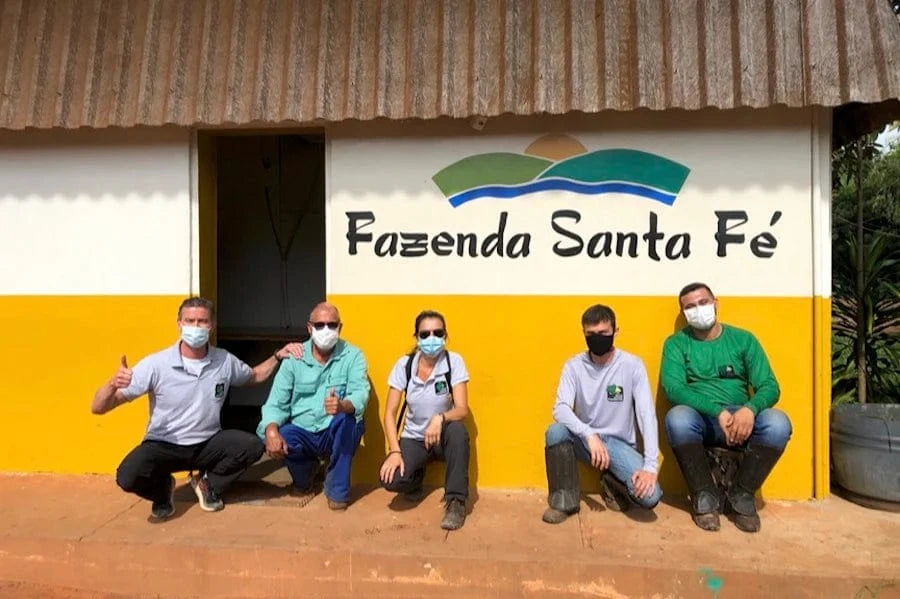
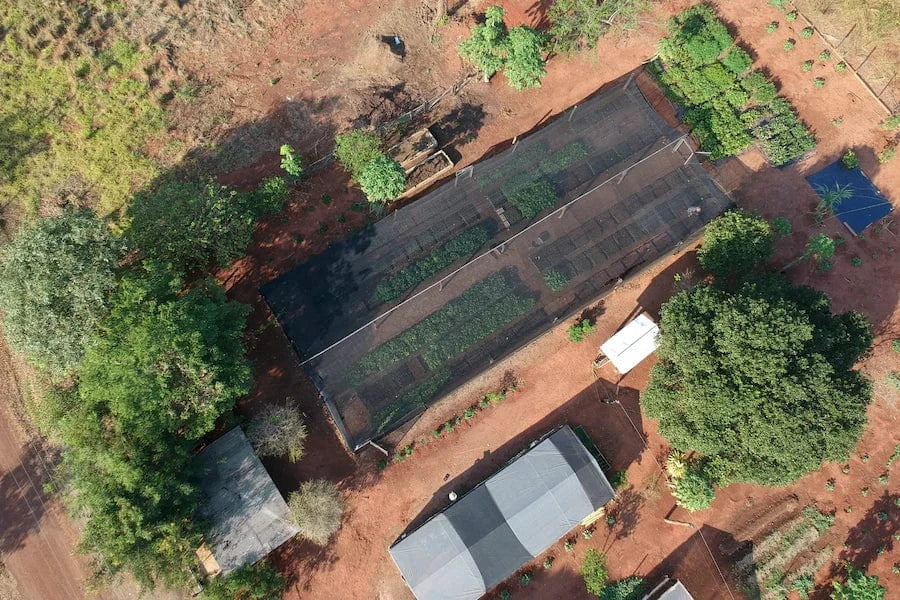
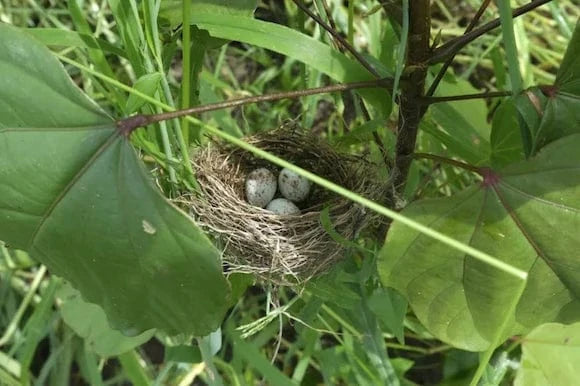
Linking the Amazon Rainforest to the Cerrado Savannas
As a biodiversity hotspot, the Amazon rainforest s home to over 3 million species, and at least 2,500 tree species or 1/3 of all the tropical tree species that exist on Earth. Though lesser known, the Cerrado’s dry forest savannahs and tree-lined riverbanks create diverse habitats for wildlife making this ecosystem a biodiversity hotspot in its own right. Unique and irreplaceable species like Giant Anteaters, Giant Armadillos, Maned Wolves and Blue-throated Macaws are all found here.
Despite the enormous biodiversity value of these ecosystems, deforestation and land clearance have fragmented habitat across them both. The large scale tree planting needed to create the Araguaia Biodiversity Corridor will enhance habitat connectivity between existing protected areas boosting wildlife populations, while recovering native vegetation across a matrix of farms on private lands.
Additionally, biodiversity corridors offer an opportunity to plan and manage conservation actions on large scales beyond the boundaries of individual protected areas. In this way, the establishment of a “green corridor” will achieve multiple conservation outcomes ranging from endangered species recovery to improved river hydrology and healthier soils.
Green Capital Through Tree Planting
As the negative effects of deforestation are becoming more prevalent across the world, the need to properly account for the many values ecosystems provide is gaining traction. In 2019, a major Green Capital Study was conducted to scientifically fact-check all the benefits of re-greening the Araguaia Biodiversity Corridor — for Brazil and the planet as a whole. The numbers speak for themselves.
It's estimated that the trees planted during this massive restoration effort will collectively capture a whopping 262 million tons of carbon, achieving 8% of Brazil’s commitment to the Paris Climate Accords. Furthermore, the study has estimated that restoring the corridor will save 17.1 billion dollars in costs to the planet, while creating 38,000 jobs and generating 2.7 billion dollars of revenue for farmers. If this weren’t already enough, the project directly impacts on all 17 Sustainable Development Goals. By identifying how many times the project delivers on return on investment (ROI), the study definitively shows that the benefits of restoration largely overcome the costs. At One Tree Planted, we couldn’t agree more: planting a tree today is an investment for a better tomorrow.
We are incredibly grateful to work with amazing people and outstanding partners who share our mission and values to make a difference. This work is ongoing with lots more to do in 2021. Be a part of the movement for change: support reforestation in the Amazon and other areas around the world!
Get news, updates, & event Info delivered right to your inbox:
Related Posts
Sustainable Diet Tips: How to Eat Healthy While Protecting the Planet
13/01/2026 by Meaghan Weeden
Agroforestry Explained: Principles, Benefits, and Case Studies
08/01/2026 by Meaghan Weeden
Plant Your Resolution: Making a Global Impact With The Grove
01/01/2026 by One Tree Planted
Popular On One Tree Planted
How to Reduce Waste: 21 Practical Zero Waste Tips for Everyday Living
23/12/2025 by Meaghan Weeden
Inspirational Quotes About Trees
16/12/2025 by Meaghan Weeden
The 9 Oldest, Tallest, and Biggest Trees in the World
11/12/2025 by One Tree Planted
Fundraising Disclosures

Be Part of the Restoration Movement
The Grove is more than just a monthly giving program: it's a vibrant community of individuals who are dedicated to reforestation and environmental restoration on a global scale.





